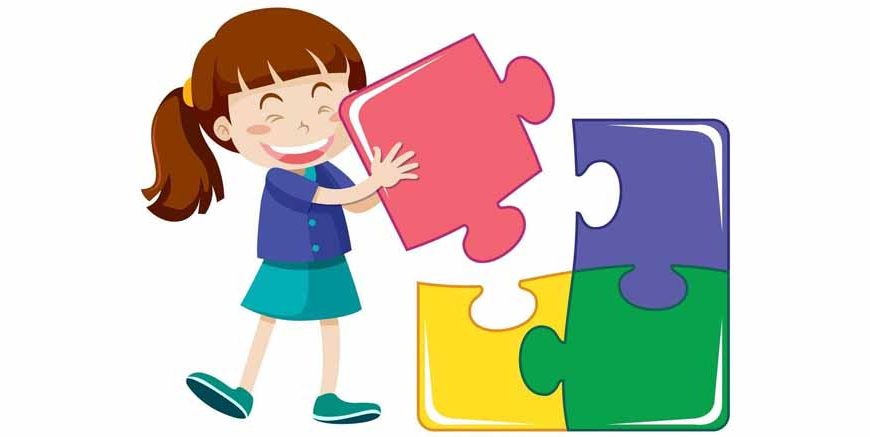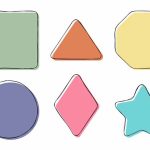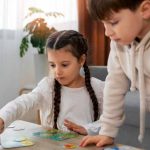Remember when playing video games as a child, you found yourself ‘stuck’ at a certain point of the game? Needless to say, that must have only strengthened your resolve to crack it!
And so it is with Puzzles. Luckily for us, all Puzzles don’t have us ‘stuck for hours’, in an attempt to solve them. That being said, the importance of Puzzles cannot be undermined, when it comes to the Development of Toddlers in their Preschool and Kindergarten years.
In this article, we have curated plenty of information about Puzzles for Children. From uncovering the Benefits of Puzzles, to knowing about the different Types of Puzzles for Kids, you will find all the Puzzle-related information you are looking for here, and more! Join us, as we embark on the journey of learning more about Puzzles for Children, with a deeper look at the Benefits of Puzzles for the Development of Toddlers.
Table of Contents:
- The Benefits of Puzzles: The Importance of Puzzles for Toddlers
- Examples of Different Types of Puzzles for Kids
- A Closer Look at Different Types of Puzzles for Kids
The Benefits of Puzzles: The Importance of Puzzles for Toddlers
The importance of Puzzles for the Development of Toddlers, is far more nuanced than you think. Presenting the Benefits of Puzzles for your little one, vis a vis their development in those crucial preschool years.
- Developing their fine Motor Skills
- A boost in Concentration Powers
- Superior Hand-Eye Coordination
- A Lesson in Critical Thinking
- A Masterclass in Spatial Awareness
- Learning about Shapes
Puzzles do far more for toddlers, than merely keeping them ‘engaged.’ When they play with puzzle ‘pieces’, there’s plenty of ‘holding’ things involved. This sees good use of their ‘wrists’ and ‘fingers’, thus contributing to the honing of those fine motor skills.
If there’s one thing most parents wish they could get their kids to do, it is this: Concentrate! Luckily for them, those puzzles have an almost ‘hypnotic’ effect on kids, helping them concentrate better, and for longer.
Cool Fact: A little child can usually concentrate around 2 to 5 times their age, in ‘minutes’. For instance, a 3-year-old will be able to concentrate for around 6-15 minutes!
This is the very same skill that is made use of, when one ‘catches a ball’!
Cool Fact: Apart from enhancing their hand-eye coordination, puzzles help kids develop their Visual Motor Integration. This skill comes handy in helping children learn to write.
The very ‘essence’ of Puzzles is ‘Solving Problems.’
Cool Fact: What children are developing when they think of ‘where a particular piece in that puzzle might fit’, are nothing short of those Critical Thinking Skills!
When children play with puzzle pieces, there’s something going on at a deeper level. They learn to manipulate objects in space, thereby developing ‘spatial awareness’.
Learning about Shapes might sound ‘basic’,but it’s one of the finer skills we can teach our kids.
Cool Fact: This ‘learning of shapes’ is brought to the forefront when kids learn their ABCs, too. They learn to recognise the shapes of letters, thereby giving meaning to them.
Examples of Different Types of Puzzles for Kids
Now that we have a solid understanding of the Importance of Puzzles for Kids, let’s get right down to what you have undoubtedly been waiting for! The following are just some of the Different Types of Puzzles for Kids.
- Peg Puzzles
- Cube Puzzles
- Puzzles with Wooden Boards
- 2-,4-,8- or 12- piece Jigsaw Puzzles
- Shape Sorters
A Closer Look at Different Types of Puzzles for Kids
Want some cool options when it comes to keeping your toddler entertained with Puzzles? Exploring in greater detail some of the cool Puzzles for Children listed in the previous section.
- Shape Sorters
- Peg Puzzles
- Jigsaw Puzzles
- Get them to count the pieces first. This helps ensure there are no pieces missing when they begin.
- Help them identify by ‘location’. At times you can gently help them, by telling them things to the tune of the following: ‘This piece goes under the Head’.
Needless to say, these are integral in developing the cognitive powers of kids.
The Basics: Shape Sorters are usually boxes that have different-shaped holes. What children have to do is match the appropriately-shaped pieces to the right holes, in order to open the box.
Bonus Fact: There are shape sorters in the market that also help kids sort objects by ‘size’ and ‘colour’!
One of the most basic puzzles for kids, but also one of the coolest!
The Basics: Children must gently place ‘pieces’ that have ‘pegs’ on them, into the appropriate spaces.
Cool Fact: These wooden-peg pieces usually have ‘pictures’ or ‘shapes’ on them.
Note: You don’t need to be overly ambitious, and get peg pieces that have ‘alphabets’ or ‘numbers’ on them. Let your toddler get comfortable with handling these pieces first, rather than embarking on a number-learning lesson!
Last but not the least, Jigsaw Puzzles certainly make for great fun for kids of all ages, toddlers included!
Bonus Fact: There’s other cool ways you can get your toddler to use those jigsaw puzzles, like the following:
If there is one thing that every adult knows, it is this: Puzzles are Addictive! Get your children to find ‘The Right Fit’ of Puzzle for them, so they can spend hours happily solving them. Oh, and in developing those vital ‘skills’, too!















